“I don’t like how it feels, when it’s not 100% genuine” – An Interview with DJ LOSER
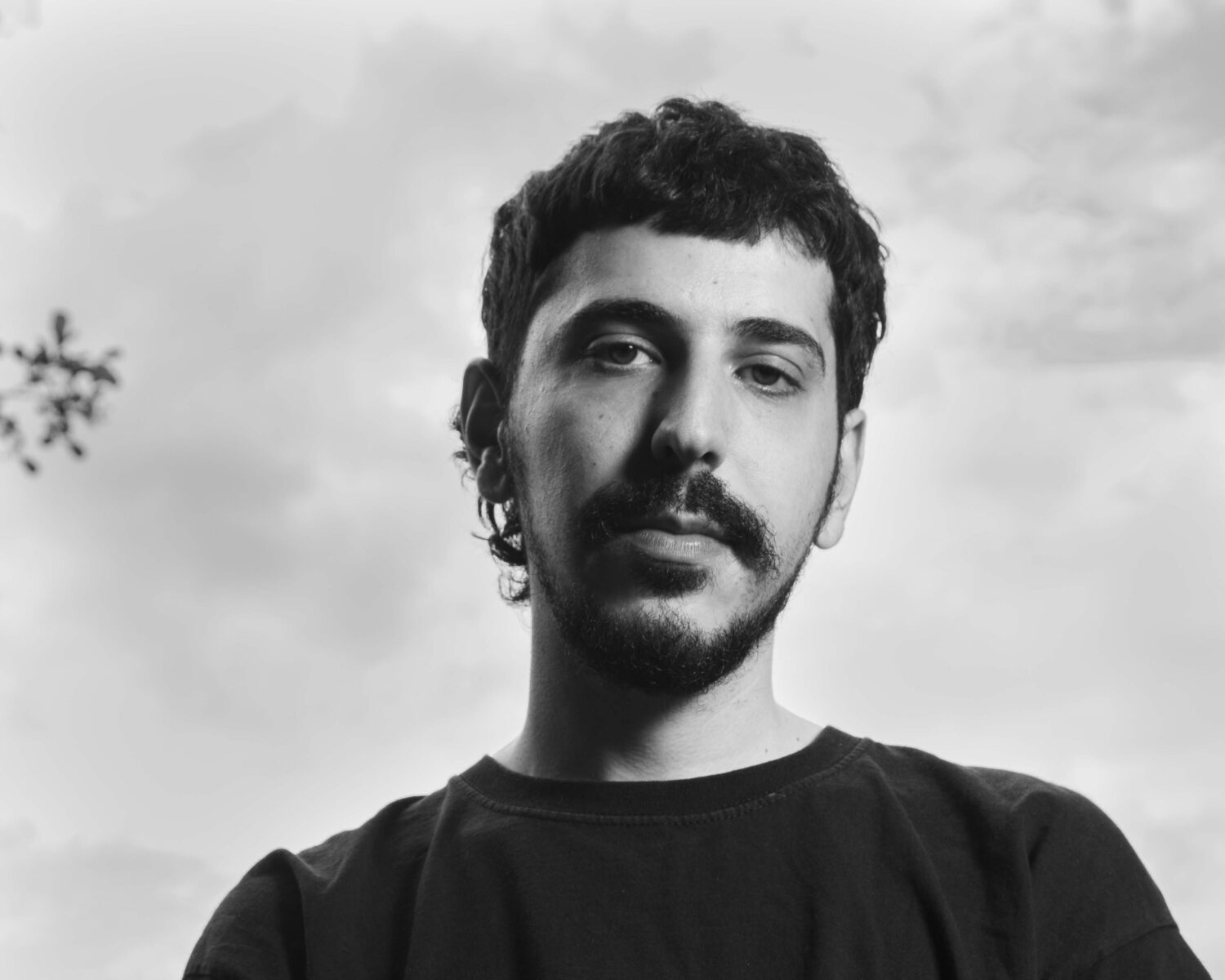
“Fight the ego instinct”
Hi DJ LOSER, you have a quite suggestive artist name. It reads like an ironic comment on contemporary, narcissism-driven, perfectionist DJ-culture, suggesting that it might be best not to take yourself too seriously, or what is the idea behind?
Hey! So, in general terms you are very close to the point of my vision behind the DJ LOSER moniker. I think for starters I need to say that it’s not about me being not serious or taking myself lightly, it’s more about trying to focus on what matters – based on my standards – to artistic creation. I know we do live in a world of ‘personas’ being at the core most of the time in the media world, not only in music, but I’m not into that. I care about the content.
As you suggested in the question, the vast majority in the realm of DJing and club culture are carrying these over-the-top perfectionistic monikers, which I think are distracting and disorienting. They act as a beautiful self-package to the persona or actually to one’s ego, rather than to the content. I don’t think that someone should be interested in and identify with your work, because they think that you are cool, but rather because they think that your work has value and is interesting. Mainly based on this reasoning, and because I wanted it as a statement on the dominance of the ego in the scene, I decided to start the project with a moniker that does not add narcissistic characteristics to the persona of the project. It was also an attempt for self-limitation, trying to control, or maybe even fight the ego instinct. But yeah, there is a clear ironic statement in it that goes against the scene.
Actually I feel that you’re particularly good with titles and names. Your other moniker runs under ‘Angel’s Corpse’, your label is baptized ‘Magdalena’s Apathy’. Both seem related to Christian faith, but subverting meanings, twisting them around, somehow opening associations of black metal. How did you come up with them?
Yeah you are right! Especially Magdalena’s Apathy draws inspiration from Christianity lore and subverting, or adding some personal meaning to it. Angel’s Corpse on the other hand, is a moniker as romantic antithesis. It’s an act of my philosophical concern. Both names are attempting to establish a dialogue with some of my fundamental concerns and my POV, and to expand on that with the music and aesthetics of both projects. I’m very familiar with the black metal world, and yeah I do like the art direction and world-building tendency that is present there, but I do believe the main aspect of my track and project names can feel like black metal. It’s because there is this Christianity lore involved in black metal projects and in mine as well. Also there is this gothic romanticization, I would suggest, because of the feelings and ideas that are present in my work that are also present in some black metal albums too. Overall the way I come up with names is very organic. It’s like I’m trying to give a title to some specific feelings and ideas. I’m trying to create a world, a setting to feel a certain way.
“I’m trying to create a world”
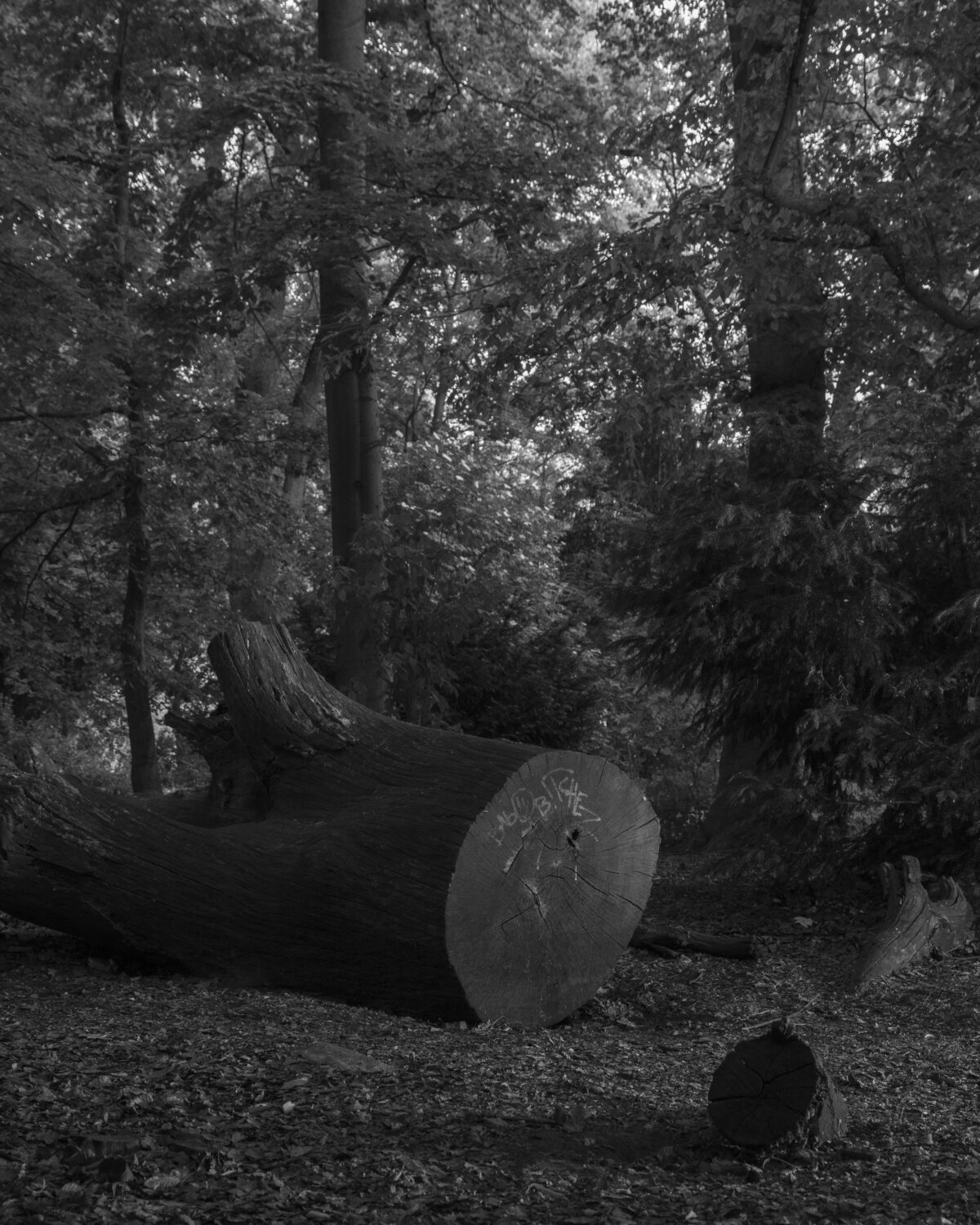
Could you share something about your journey into music with us? What drew you to become a DJ and producer?
Growing up in Greece, the early 2000s electronic music was quite a thing and having an older sibling got me in touch with it pretty soon. I was a fan of the energy. I had no clue about how this music was being made until I was 14 or 15 years old. I became friends with someone, who actually knew. He was messing around with some DAWs back then. When I realized the possibilities and the freedom that the software offers you, and how electronic music can be made, I was simply overly attracted by the possibilities. I felt the intense desire to make sounds that I like, or sounds that sound like the tracks that I like. I had a deeper need to express and communicate my feelings. I started DJing about two years after being already involved in production. I was quite lucky as some close friends were already active as DJs at underground parties, in underground clubs, etc. As I said, I was already a listener and collector for a long time, but I had not tried playing as a DJ before I turned 18. I was at a party and I dared to try it. For me, it’s a completely different experience. It fills different creative gaps.
Your tracks have a unique vibe to them. How do you describe your musical style, and what influences your sound?
If I have to characterize my work, I think what best describes it is a specific sensibility. It’s specific emotions, a personal way of approaching styles and the genres I produce around. I try to create sound, danceable or not, with emotional intensity, having empathy mainly towards my own feelings. I try to express how I feel through different styles. I want to produce unique experiences for the listener and me through very well established styles of music, adding a signature touch to this huge field. That’s my goal, you could say. My influences are versatile. I get input from all sorts of media, music of course, videos, movies, videogames etc. It’s intriguing to me to create sounds that are able to tell a story, to give a specific POV and an emotional spectrum that might be in contrast with the musical formula or pattern that I’m using.
“A specific sensibility”
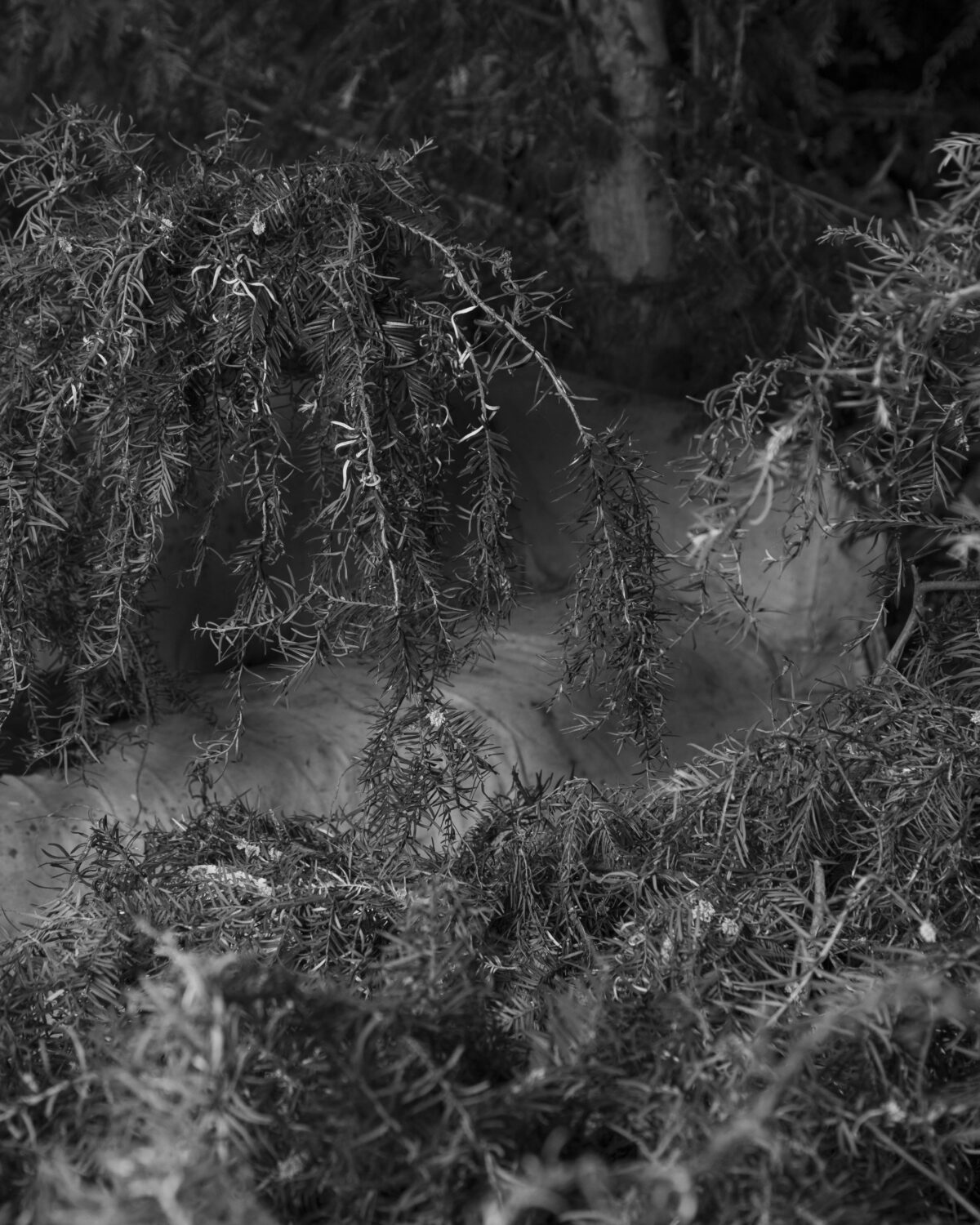
Many of your tracks have a distinct videogame-like feel. Is there a story or inspiration behind this aesthetic?
I’ve been – and still am – a gamer my whole life. It’s one of the biggest inspirations and references i have, on a subconscious level as well for sure.There isn’t an actual story to be said around this, but I’m actively and consciously a fan of videogame culture, art direction and aesthetics, specifically Japanese fantasy games, and late 90s to early 00s RPGs. It just feels good and right to me, and it reflects a big part of who I am. That’s the main reason. It’s very easy to notice in my work and that’s on purpose. From actual music, to track titles, way of creating artworks etc. It’s been my main source of getting in touch with the world and taking care of myself from a young age, the whole gaming culture, magazines, internet cafes.
Your musical evolution is fascinating, transitioning from lo-fi house to industrial, techno, and beyond. What drives these shifts in your style?
As mentioned, what fascinates me the most in music is the feeling and the essence it gives you. I switch and keep switching between styles, because I always reach a point where creatively I feel like I can’t say anything more with the specific formula, genre, or style. I find all styles exciting and interesting to experience, and I wanna try to give my specific touch to whatever I’m doing. I’m a very versatile person, input-wise, and of course output-wise. I’m not doing music because of the lifestyle that a specific culture brings. It’s a creative need and interest, and that’s it. It’s just that I’ve been fascinated by different patterns of music throughout the years, and I have the need to express myself using them. I don’t think what describes me is being techno, trance, industrial or whatever. It’s the way my work feels.
“Japanese fantasy games, and late 90s to early 00s RPGs”
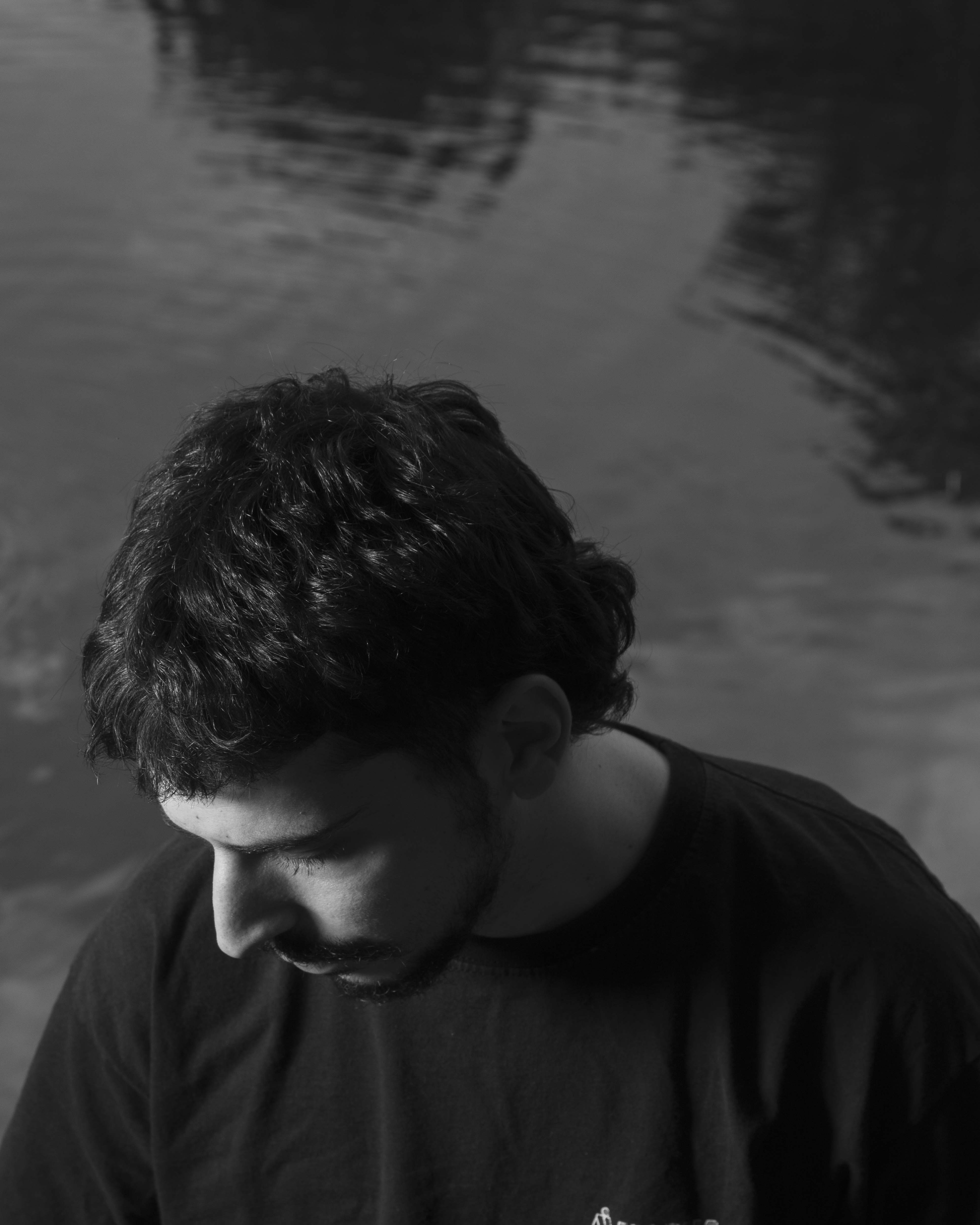
Questions of authenticity seem outdated, still I feel that especially when it comes to club music it has a lot to do with some sort of realness that differentiates good techno from generic crap. Which sounds are more real than others? What’s the difference between a good and an irrelevant track? I feel it’s not only taste that tells the difference. It’s a question I can’t stop asking myself actually. And maybe it relates to what you’ve framed as “the essence”.
I think most real are the sounds that were created effortlessly, without any unnecessary brain process. The sounds that were created in a moment, out of the need to express ideas and emotions. Out of the need to communicate them. I think that it is noticeable when we listen to a track, how deep and sincere its mood is. Usually an honest track is more difficult to fit into specific boxes, and has a peculiar experience and probably technical shortcomings or mistakes. I can also say that I think that amateur music is more real than professional music, because it’s created from deeper needs and purposes.That’s when we perceive music as art, but music – as all media – is not just art. It’s a format, meaning it can be used for different reasons apart from expressing ideas. Especially dance music. It’s a complex field when it comes to musical identity. Dance music is also a big entertainment field, a place where people treat and use music as a tool for other means, putting music second to the overall experience it is involved with.
Now with that being said, the difference between a good and an irrelevant track is based on the context you put it. Some tracks are art projects, some tracks are ‘clubbing tools’, or just tools of social standard and needs. If we perceive music as art, then I guess it’s quite easy to notice soulless work. On the other hand it’s easy to understand how a soulful and emotionally overpacked track can be mistreated and translated as irrelevant in the wrong setting. It really comes down to the standards and what we are looking for from music, how we treat it and why we are in touch with it. For me, generally tracks that are not thought-provoking or emotionally driven are considered irrelevant or pointless.
“Amateur music is more real than professional music”
So how do you keep yourself inspired and motivated to explore new sounds and push your musical boundaries?
I try not to think about it honestly. I’ve been doing this for a decade now, and inspiration and motivation are fluid. Sometimes I’m hyperproductive, some periods I lack creativity, or even the need to create. I used to get stressed or feel weird about not being inspired or not needing to create, but I got to know myself more and understood that some periods are just there for input, or just for, you know, living life. When something strikes me, an experience, an idea, exciting input, I usually automatically start having ideas or the need to experiment. So you can say I’m not overthinking anymore. I’m following how I feel and what feels honest each day. I don’t force myself to produce or create for exercise or something. I don’t like how it feels, when it’s not 100% genuine, a need.
What’s your creative process like when you’re working on new music? Do you have any particular habits or routines?
I have to be alone. I need to have an idea, or a vibe that I’m locked in with, and so I have to produce with daylight for like 90% of my work.
What can you tell us about the inspiration behind your project Magdalena’s Apathy?
Magdalena’s Apathy was originally a side project where I was releasing online and through a few labels. It was a different side of my sound back then. The reason it became my label’s name is that it has a very specific world-building name. It has a setting that corresponds to what I stand for, with its cryptic sense and approach. The label’s character is very simple and honest: I release music of mine and music from artists that I enjoy and reflect on their work and approach. I mainly started operating behind the M.A label because I wanted to have total freedom on the audiovisual aspect of my releases, meaning curating everything on my own, exactly as I wanted to. It’s an active label that keeps growing besides my solo releases and collabs. I suppose it’s because many people get attached to my approach and aesthetics, and to the freedom this platform offers.
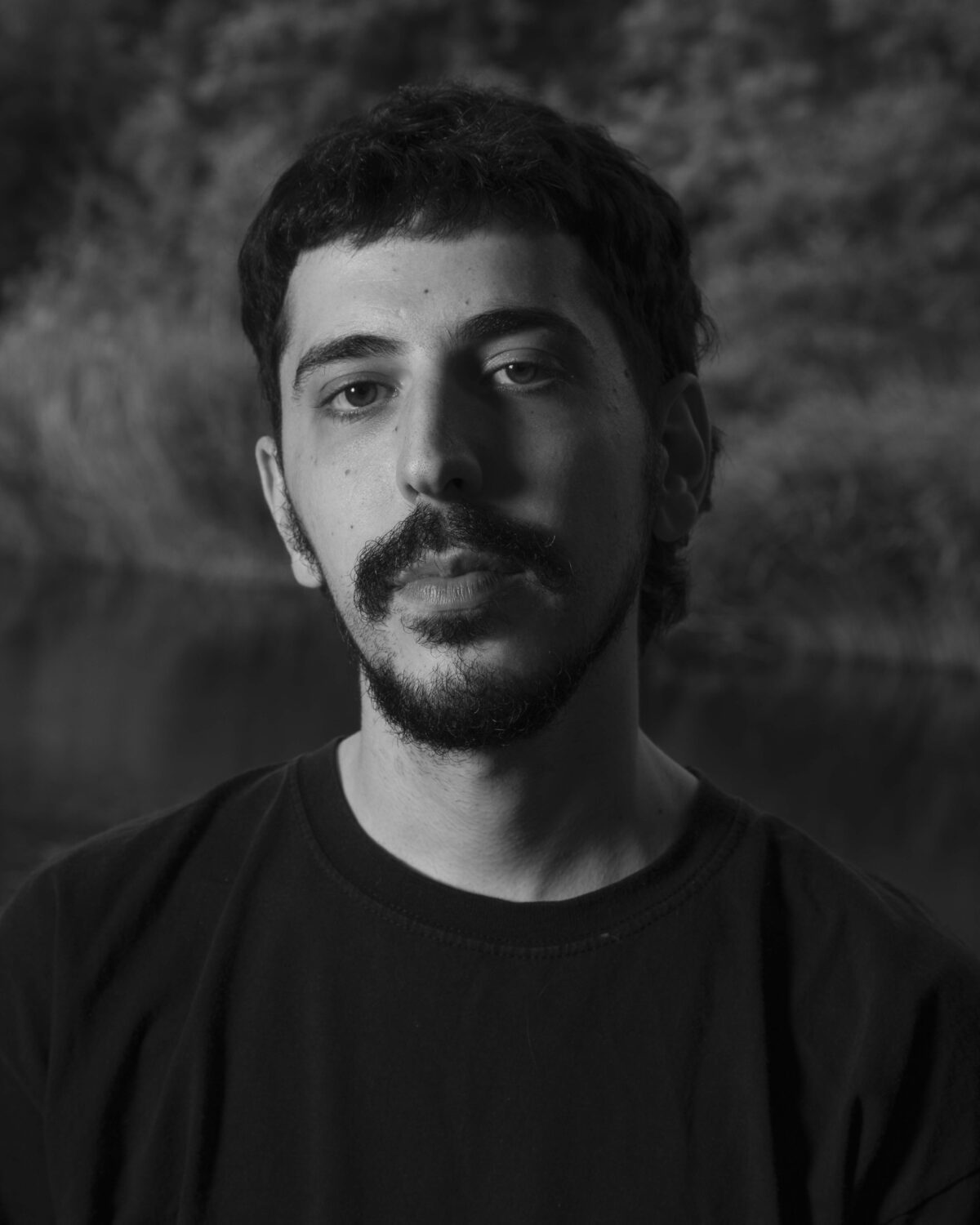
“I thought it be nice for Magdalena to become an actual character”
We’ve noticed that you often feature girls on your cover art. Is there a specific reason for or theme behind this choice?
The main reason for it is the world-building aspect. I’m trying to create a story lore behind the releases. So I’m trying to create covers that have some sort of connection, a storyline so to say. Maybe something like a videogame series, or a manga series. It’s volumes that are featuring similar traits and directions with their covers, but always adding something to the story.The reason I work with pictures of girls – though actually 99% of all covers is the same girl – it’s because it’s like this extra step towards world-building. I mean the label’s name is ‘Magdalena’s Apathy’ and I thought it would be nice for Magdalena to become an actual character – apart from the cryptic metaphor the label’s name has, but that I want people to find out on their own. It also carries these very early internet, proto-social media vibes. It’s videogame-ish, taking the MySpace/hi5, or msn direction, which is something that also reflects on my age and my influences. So you can say it’s a way of trying to express and create a very personal thing, a platform that carries my signature as in all my work, and the aesthetics that I find the coolest.
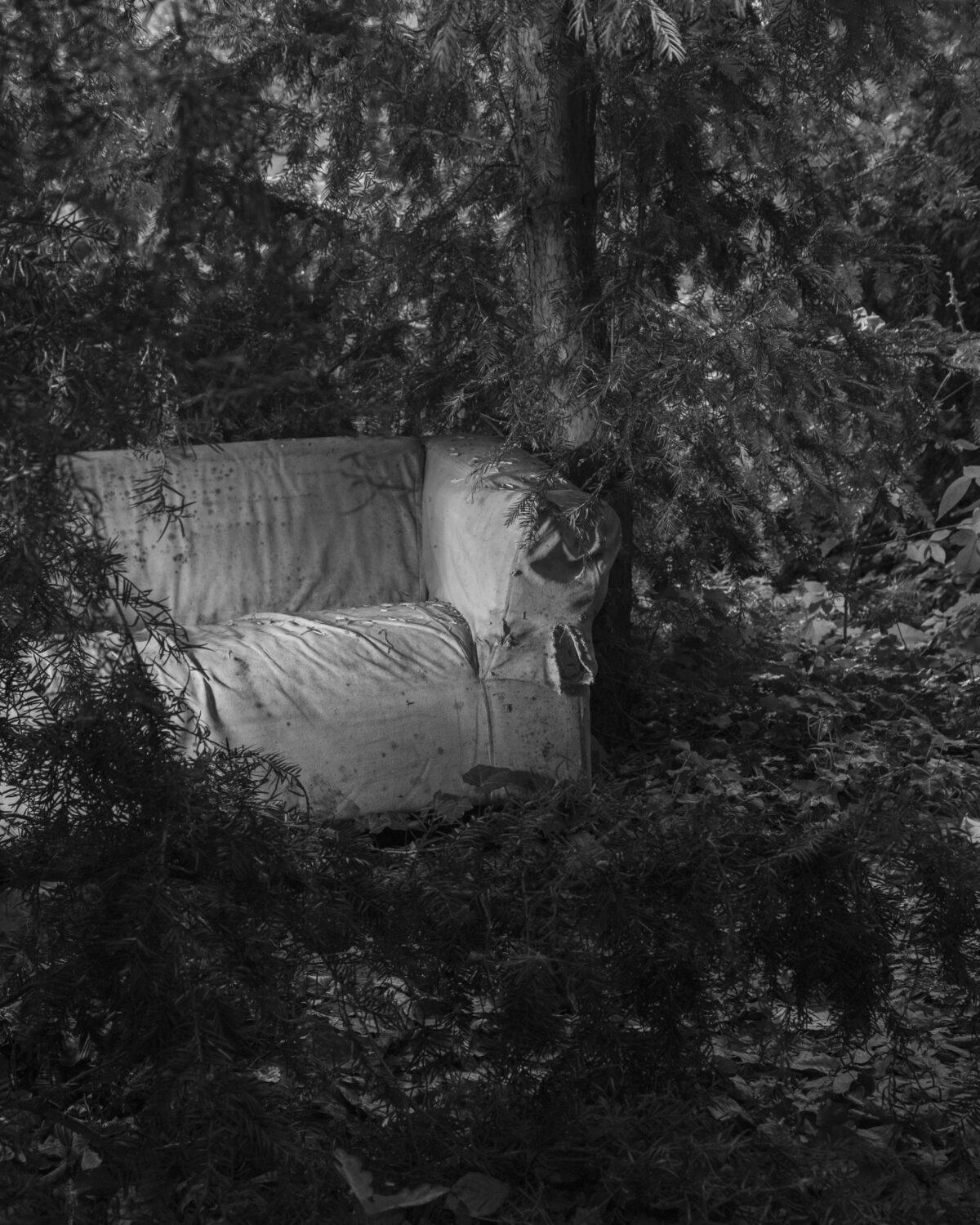
“You are more hungry, living in a setting like that”
You’re based in Thessaloniki. I have no clue what’s going on there. Much? Did you grow up in this city? What’s the difference between Athens and Thessaloniki? Vibe- and scene wise? Some people say Athens is the new Berlin. Would you agree?
I was born and raised in Thessaloniki.The city used to be way more active a decade ago. Right now things are kind of dull and uninspired, in my opinion.There is a lack of spaces, there is a lack of investment, so very few things are currently happening here, compared to other cities in Europe with a population of 1.5 million. There are people and crews and are doing their thing but that’s it. It’s hard for a person with my needs and standards to experience something innovative or up to my taste here, when it comes to music as an art standard. You can have great times here, I do love the city and I prefer living in a city that makes your creativity grow, because you are more hungry, living in a setting like that.
Athens is a huge city and the amount of tourists is crazy, so for sure there are more things going on, and more ideas are being exchanged. I don’t think there is an actual difference regarding the vibe. There are mostly differences in statistics, so regarding the quantity of events, of spaces, and of people that are interested in this scene. Which leads to a more active scene with more options in Athens compared to Thessaloniki. But I don’t think Athenians have a different direction or vibe than Thessalonikians. At the end of the day, it’s a globalized culture.
Stegi radio, as so many art related things happening in Greece, is funded by the Onassis foundation. What’s your opinion on this crucial cultural investor of your home country?
I’m a collaborator of Stegi radio, having my monthly radio show internet_Consolation.exe there, and have also worked with Onassis foundation for a few events
I believe it’s nice for a foundation to support art and artists from their country. It helps up-and-coming creators, and people that want to build a career. It gives you experience and also opportunities, and financial support that is important for artists, especially in a country like Greece, where art support is almost 0 in general. Their direction is on point, when it comes to finding inspiring artists from the country, and projects that have something to say, like a statement to offer.
It also brings more eyes and attention to Greek artists, with the local scene usually being more hidden, and not so spread out, which is a good thing for contemporary Greek artists.
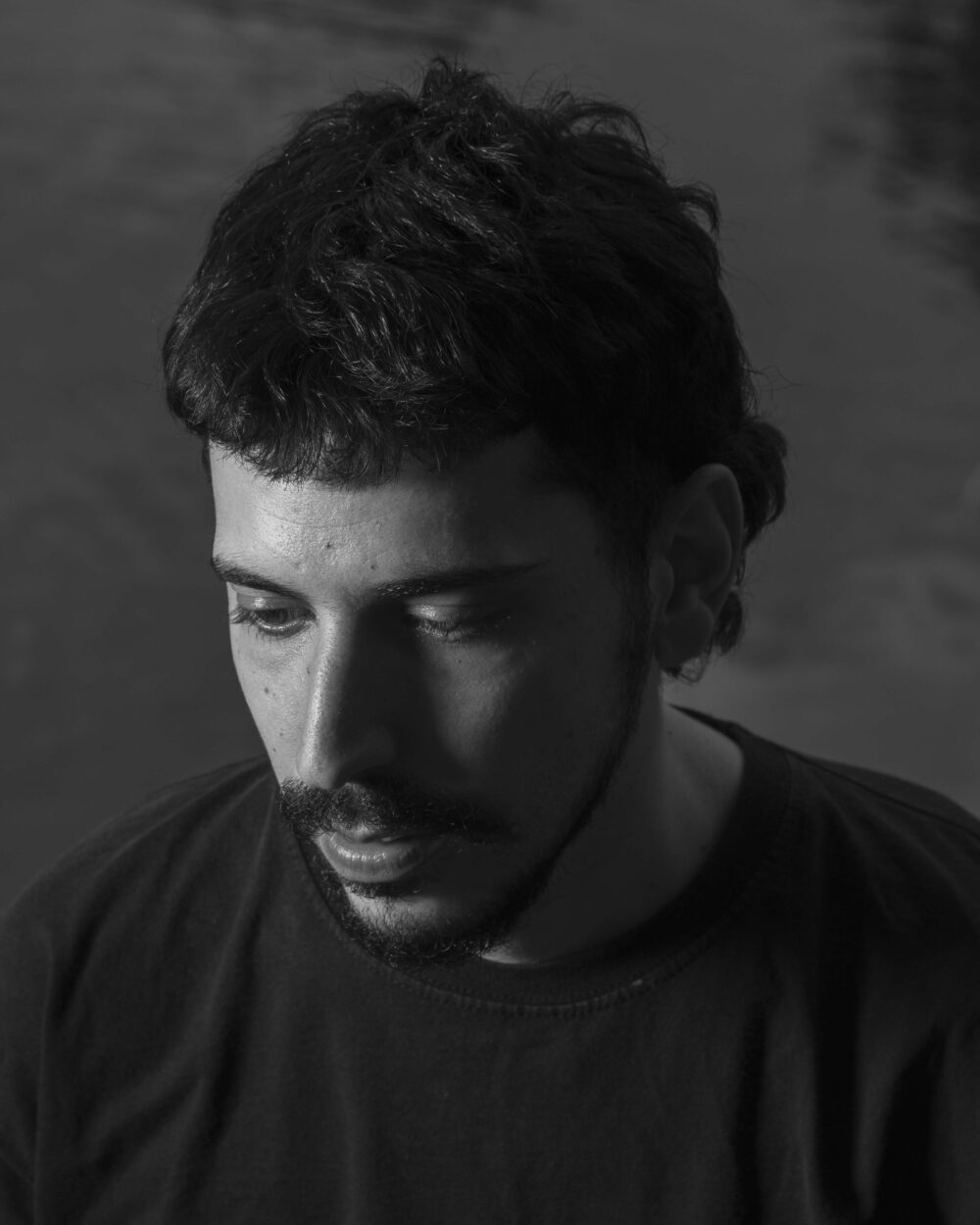
“I always need new paths.”
Could you finally maybe share a memorable moment from your career, and let us know about your upcoming projects?
Meeting specific people across the globe and connecting with some of them on a genuine level is something that I highly value. Cliche or not, all my moments from traveling and DJing – great ones, or meh ones – are important to me, because they help me progress and evolve as a person, to understand my personality, my desires, more and better. Regarding future plans, there is some stuff coming that leads me to new creative paths, and I always need new paths.
Thanks very much for the interview!
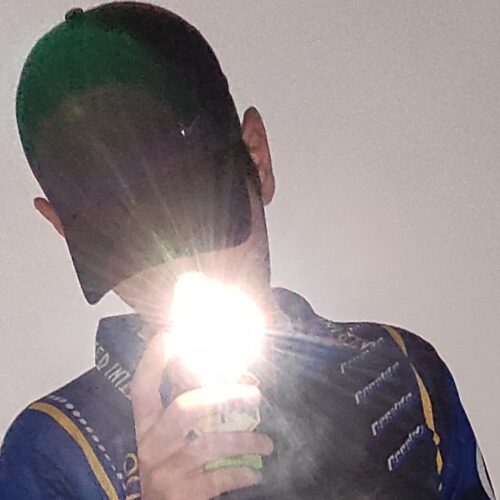
DJ Loser

This article is brought to you by Struma+Iodine as part of the EM GUIDE project – an initiative dedicated to empowering independent music magazines and strengthen the underground music scene in Europe. Read more about the project at emgui.de
Funded by the European Union. Views and opinions expressed are however those of the author(s) only and do not necessarily reflect those of the European Union or the European Education and Culture Executive Agency (EACEA). Neither the European Union nor EACEA can be held responsible for them.